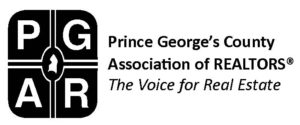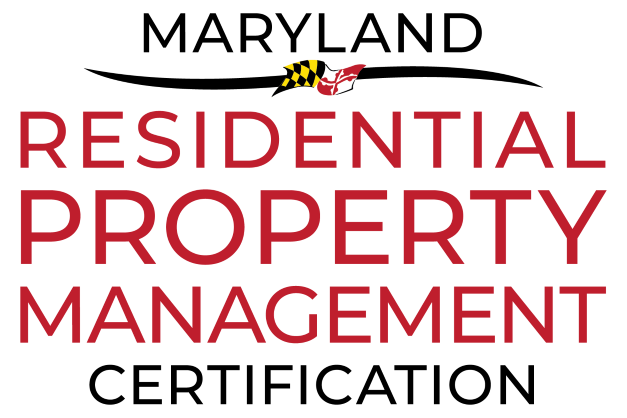Effective lease enforcement in Crofton, MD, starts with clear communication, consistent follow-through, and detailed documentation. By setting expectations early and addressing issues promptly, landlords can maintain compliance, protect their property, and foster positive tenant relationships.
Lease enforcement can be one of the toughest parts of being a landlord in Crofton, MD, but it's also one of the most important. Strong lease enforcement keeps your rental business running smoothly, ensures tenants uphold their responsibilities, and minimizes costly disputes. With Crofton's steady rental market and Maryland's detailed tenant laws, understanding how to apply fair and consistent enforcement can make all the difference between stress and success.
What Is the Most Common Cause for Breaching a Lease?
The most common cause for breaching a lease is nonpayment of rent. When tenants fail to pay on time or stop paying altogether, it disrupts cash flow and creates legal complications for landlords.
However, rent issues aren't the only cause. Other frequent breaches include:
- Unauthorized occupants
- Pet violations
- Property damage
- Subleasing without permission.
What Are the Legally Permitted Grounds to End a Tenancy?
In Maryland, landlords can legally end a tenancy under specific conditions designed to protect both property owners and tenants. Understanding these permitted grounds helps ensure every action aligns with state law and avoids unnecessary disputes.
Here are seven common grounds to end a tenancy:
Nonpayment of Rent: When a tenant consistently fails to pay rent as agreed in the lease
Lease Violations: Breaches such as unauthorized pets, occupants, or property damage
Illegal Activity: Using the property for unlawful purposes, including drug-related offenses
End of Lease Term: When the fixed lease period expires and proper notice is given not to renew
Owner Move-In or Property Use: If the landlord or immediate family intends to occupy the property
Substantial Renovations or Demolition: When the property requires major work that makes it uninhabitable
Mutual Agreement: Both landlord and tenant consent to end the lease early in writing
Effective Lease Enforcement Strategies for Landlords
From setting clear expectations to following Maryland's legal procedures, the right approach ensures fairness for tenants and security for your investment. Below are proven lease enforcement strategies every landlord in Crofton, MD, should follow.
1. Start With a Clear and Detailed Lease
Every effective enforcement strategy begins with a strong foundation -- the lease itself. A well-crafted lease agreement clearly defines rent payment schedules, maintenance obligations, and tenant responsibilities. It should also outline penalties for late rent, unauthorized occupants, or property damage.
In Crofton, where rental laws align closely with Maryland's Real Property Code, landlords should ensure the lease complies with local requirements while remaining easy for tenants to understand. Transparency at this stage prevents confusion and builds trust right from move-in day.
2. Conduct Thorough Tenant Screening
Enforcing a lease becomes much easier when you start with reliable tenants. Take time to verify credit history, employment, income, rental references, and background information before approving an applicant.
Inconsistent screening can lead to costly issues down the road, such as nonpayment or frequent lease violations. A fair, standardized screening process helps identify trustworthy renters and creates a solid basis for a successful tenancy.
3. Maintain Open and Consistent Communication
Good communication builds trust and prevent conflicts. Address concerns promptly and keep all communication professional and documented. A calm conversation can often resolve issues before they require formal enforcement.
4. Perform Regular Property Inspections
Regular inspections protect both your property and your lease integrity. Schedule them quarterly or biannually, depending on the type of rental and tenant history. These visits help identify maintenance issues early, verify compliance, and ensure the property remains in good condition.
Provide tenants with proper notice, as required by Maryland law, and document each inspection with photos and notes. This not only prevents disputes later but also reinforces that you're attentive to your property's upkeep.
5. Document Every Interaction and Violation
Accurate documentation is essential in lease enforcement. Keep written records of rent payments, maintenance requests, warnings, and communications. Detailed records strengthen your position if legal action becomes necessary.
6. Enforce Policies Consistently and Fairly
Consistency builds credibility. Tenants respect landlords who apply rules evenly and without bias. Avoid making exceptions that could undermine your authority or lead to claims of unfair treatment.
If a tenant violates a lease term, follow the same steps you would for anyone else -- issue written notices, document communication, and adhere to your stated policies. Consistency not only protects you legally but also helps maintain a respectful and predictable rental environment.
7. Follow Maryland's Legal Procedures for Notices and Evictions
When lease violations persist despite multiple warnings, landlords must proceed carefully and within the law. Maryland requires specific notice periods and documentation before pursuing eviction or court action.
For example, a Failure to Pay Rent case can be filed promptly, while other violations require a longer notice period. Understanding these timelines ensures that your enforcement process remains lawful and professional. Partnering with a knowledgeable property management firm can also simplify compliance and reduce stress.
Frequently Asked Questions
Can I Charge Additional Fees for Lease Violations?
Yes, if your lease agreement clearly specifies them. For example, late payment fees, returned check fees, or pet violation charges are enforceable when detailed in writing. However, fees must comply with Maryland's rental laws and cannot be excessive or arbitrary.
What Should I Do If a Tenant Refuses Property Inspections?
Tenants generally must allow reasonable access for inspections with proper notice. In Maryland, landlords must provide at least 24 hours' notice unless there's an emergency. If a tenant continually denies access, document the refusals and issue a written notice citing the lease clause that permits inspections.
What Happens If a Tenant Abandons the Property?
If a tenant leaves without notice, Maryland law allows landlords to consider the property abandoned after specific conditions are met, such as unpaid rent and removal of personal belongings. Before re-renting, document the situation, store any remaining items properly, and file the necessary notices to protect yourself legally.
When Should I Hire a Property Management Company?
Hiring a professional property management company can be especially valuable if you own multiple rentals or live far from your Crofton property. Experts handle lease enforcement, inspections, and legal compliance efficiently, reducing stress and minimizing costly mistakes.
Partner With Professionals Who Protect Your Investment
Proper lease enforcement means acting with clarity, consistency, and respect -- ensuring your property in Crofton remains both protected and profitable. When you partner with a seasoned team that puts transparency, integrity, and owner-focused service first, your investment gains the care it deserves.
For property owners in Anne Arundel and Prince George's Counties, join forces with Silver River Properties -- a full-service management company known for dependability, honesty, and long-term results. Contact us to learn more.










